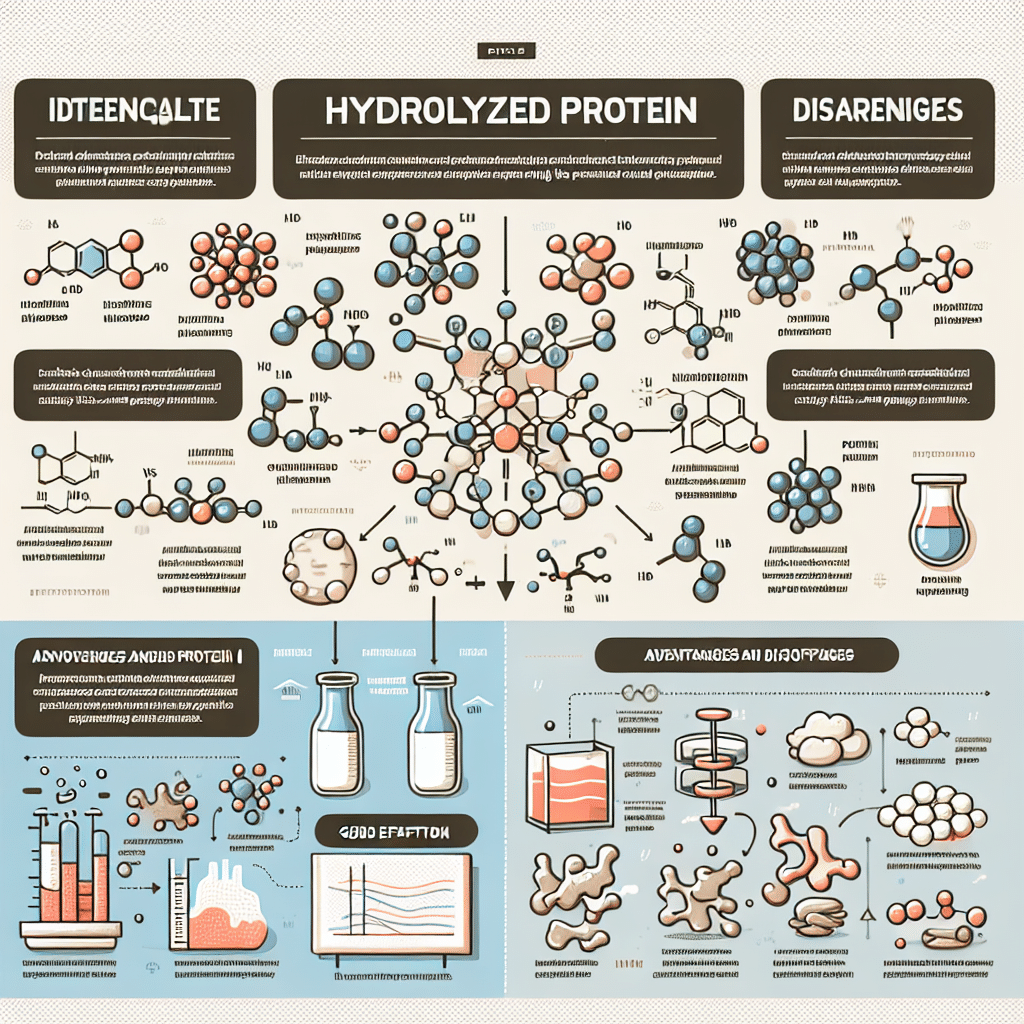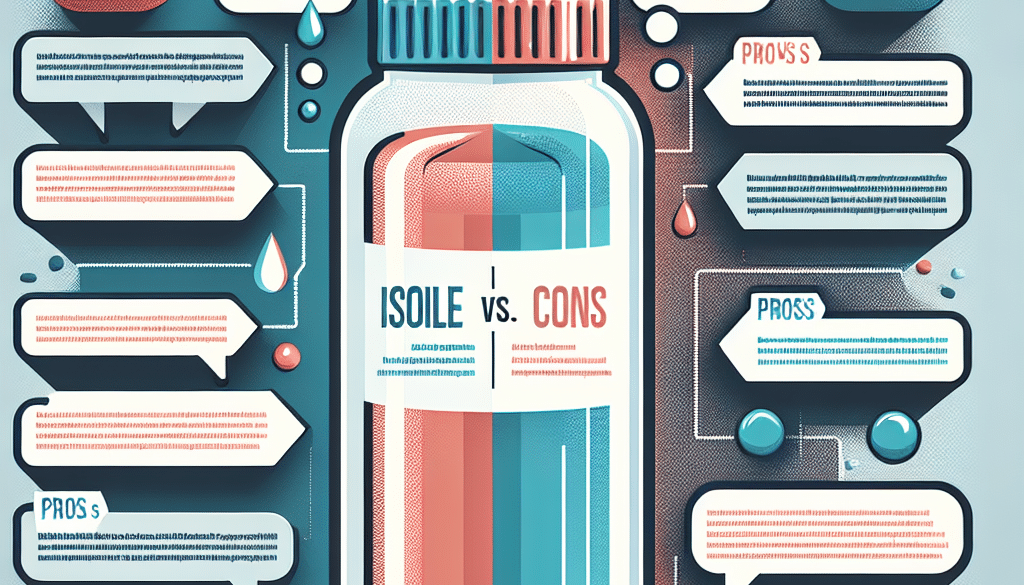Which Protein Is Better Isolate Or Hydrolyzed?
-
Table of Contents
- Isolate vs. Hydrolyzed Protein: Which Is the Superior Choice?
- Understanding Protein Isolate
- Exploring Hydrolyzed Protein
- Comparing Isolate and Hydrolyzed Proteins
- Digestion and Absorption
- Purity and Composition
- Taste and Mixability
- Cost Considerations
- Choosing the Right Protein for Your Needs
- Conclusion: Isolate or Hydrolyzed Protein?
- Discover ETprotein’s Premium Protein Products
Isolate vs. Hydrolyzed Protein: Which Is the Superior Choice?

Protein supplements are a staple in the diets of athletes, bodybuilders, and health enthusiasts. Among the various types of protein powders available, isolate and hydrolyzed proteins are two of the most popular and debated forms. Understanding the differences between these proteins is crucial for anyone looking to optimize their nutrition and achieve their fitness goals. This article will delve into the science behind isolate and hydrolyzed proteins, compare their benefits, and help you determine which might be better suited for your needs.
Understanding Protein Isolate
Protein isolate is a form of protein that has been processed to remove most of the fat and lactose, resulting in a product that is typically 90-95% protein. This high protein content makes it a favorite among those looking to increase their protein intake without consuming excess calories or carbohydrates.
- Purity: Isolate proteins are highly purified, which means they contain fewer impurities and are easier on the digestive system.
- Lactose Content: They are an excellent choice for individuals with lactose intolerance due to the minimal lactose content.
- Protein Quality: Isolates provide a complete amino acid profile, making them an ideal source of essential amino acids for muscle repair and growth.
Exploring Hydrolyzed Protein
Hydrolyzed protein, also known as hydrolysate, is produced by further processing protein isolate or concentrate through hydrolysis. This process breaks down the protein into smaller peptides and amino acids, which can lead to faster absorption and digestion.
- Digestion Speed: The hydrolysis process makes these proteins quicker to digest, which can be beneficial post-workout for rapid muscle recovery.
- Hypoallergenic: Hydrolyzed proteins are less likely to cause allergic reactions, making them a safe option for individuals with certain food sensitivities.
- Efficiency: The smaller peptides can be more efficiently utilized by the body, potentially leading to better muscle synthesis and recovery.
Comparing Isolate and Hydrolyzed Proteins
When choosing between isolate and hydrolyzed proteins, several factors come into play, including digestion rate, purity, and individual dietary needs. Here’s a closer look at how these proteins stack up against each other:
Digestion and Absorption
Hydrolyzed protein is often touted for its rapid absorption rate, which is beneficial for immediate muscle repair post-exercise. Isolate protein, while still fast-digesting compared to concentrates, is absorbed at a slightly slower rate. For those who require quick nutrition, such as athletes in training, hydrolyzed protein may offer an edge.
Purity and Composition
Both isolate and hydrolyzed proteins are low in fat and carbohydrates, but isolates are typically higher in protein content by weight. This makes isolates a more concentrated source of protein, which can be advantageous for those looking to maximize their protein intake without additional calories.
Taste and Mixability
The hydrolysis process can sometimes result in a bitter taste, which may be off-putting to some users. Isolate proteins generally have a more neutral taste and are easier to flavor. Additionally, both types of protein mix well with liquids, but isolates may have a slight edge in mixability due to their finer texture.
Cost Considerations
Hydrolyzed proteins are often more expensive due to the additional processing required. For those on a budget, isolate proteins may provide a more cost-effective option while still delivering high-quality protein.
Choosing the Right Protein for Your Needs
The decision between isolate and hydrolyzed protein should be based on your specific goals, dietary restrictions, and budget. Here are some scenarios where one might be preferred over the other:
- Post-Workout Recovery: If you’re looking for rapid absorption to kickstart recovery, hydrolyzed protein may be the better choice.
- Lactose Intolerance: Both options are suitable for those with lactose intolerance, but isolates are more widely available and may be easier to find.
- Budget Constraints: If cost is a concern, isolate proteins offer a high-quality, more affordable alternative to hydrolyzed proteins.
- Taste Preferences: For those sensitive to taste, isolate proteins may be preferable due to their neutral flavor profile.
Conclusion: Isolate or Hydrolyzed Protein?
In conclusion, both isolate and hydrolyzed proteins offer unique benefits that cater to different needs. Hydrolyzed protein is ideal for those requiring fast absorption and hypoallergenic properties, while isolate protein is a versatile, cost-effective option that provides high purity and a complete amino acid profile. Ultimately, the choice between isolate and hydrolyzed protein should align with your personal health goals, dietary requirements, and taste preferences.
Discover ETprotein’s Premium Protein Products
If you’re in the market for high-quality protein supplements, ETprotein offers a range of organic and hydrolyzed protein products that cater to various dietary needs. Their selection includes organic rice protein, pea protein, and specialty proteins like watermelon seed and pumpkin seed proteins. With a commitment to non-GMO, allergen-free ingredients, and high purity standards, ETprotein is a trusted source for your protein supplementation needs.
About ETprotein:
ETprotein, a reputable protein and L-(+)-Ergothioneine (EGT) Chinese factory manufacturer and supplier, is renowned for producing, stocking, exporting, and delivering the highest quality organic bulk vegan proteins and L-(+)-Ergothioneine. They include Organic rice protein, clear rice protein, pea protein, clear pea protein, watermelon seed protein, pumpkin seed protein, sunflower seed protein, mung bean protein, peanut protein, and L-(+)-Ergothioneine EGT Pharmaceutical grade, L-(+)-Ergothioneine EGT food grade, L-(+)-Ergothioneine EGT cosmetic grade, L-(+)-Ergothioneine EGT reference grade and L-(+)-Ergothioneine EGT standard. Their offerings, characterized by a neutral taste, non-GMO, allergen-free attributes, with L-(+)-Ergothioneine purity over 98%, 99%, cater to a diverse range of industries. They serve nutraceutical, pharmaceutical, cosmeceutical, veterinary, as well as food and beverage finished product distributors, traders, and manufacturers across Europe, USA, Canada, Australia, Thailand, Japan, Korea, Brazil, and Chile, among others.
ETprotein specialization includes exporting and delivering tailor-made protein powder and finished nutritional supplements. Their extensive product range covers sectors like Food and Beverage, Sports Nutrition, Weight Management, Dietary Supplements, Health and Wellness Products, and Infant Formula, ensuring comprehensive solutions to meet all your protein needs.
As a trusted company by leading global food and beverage brands and Fortune 500 companies, ETprotein reinforces China’s reputation in the global arena. For more information or to sample their products, please contact them and email sales(at)ETprotein.com today.












